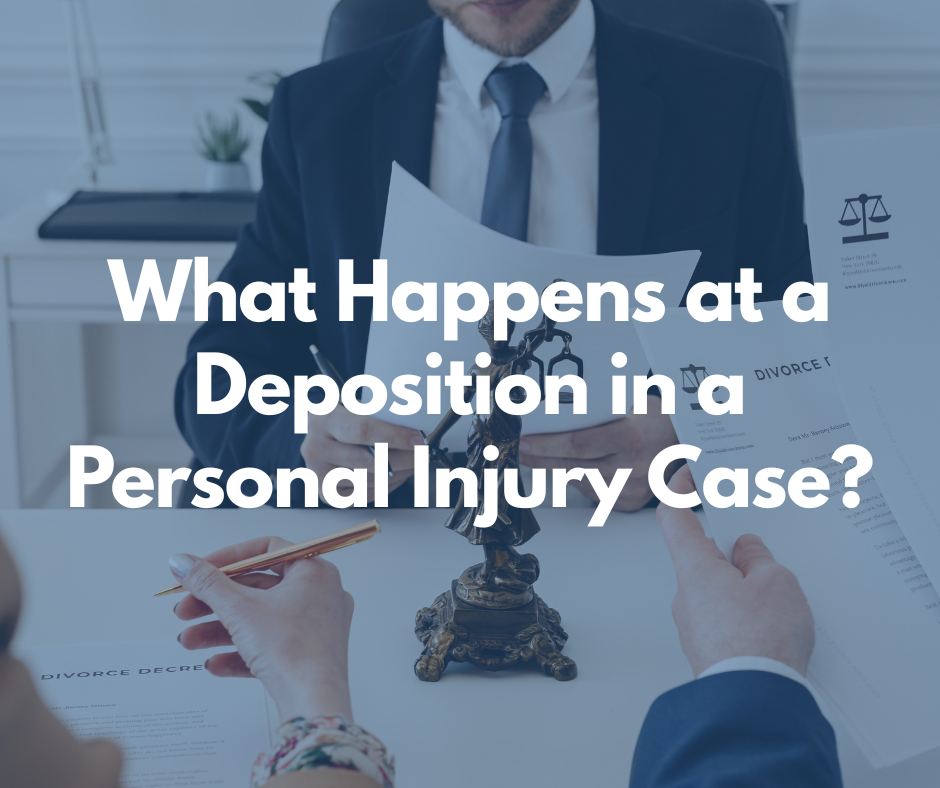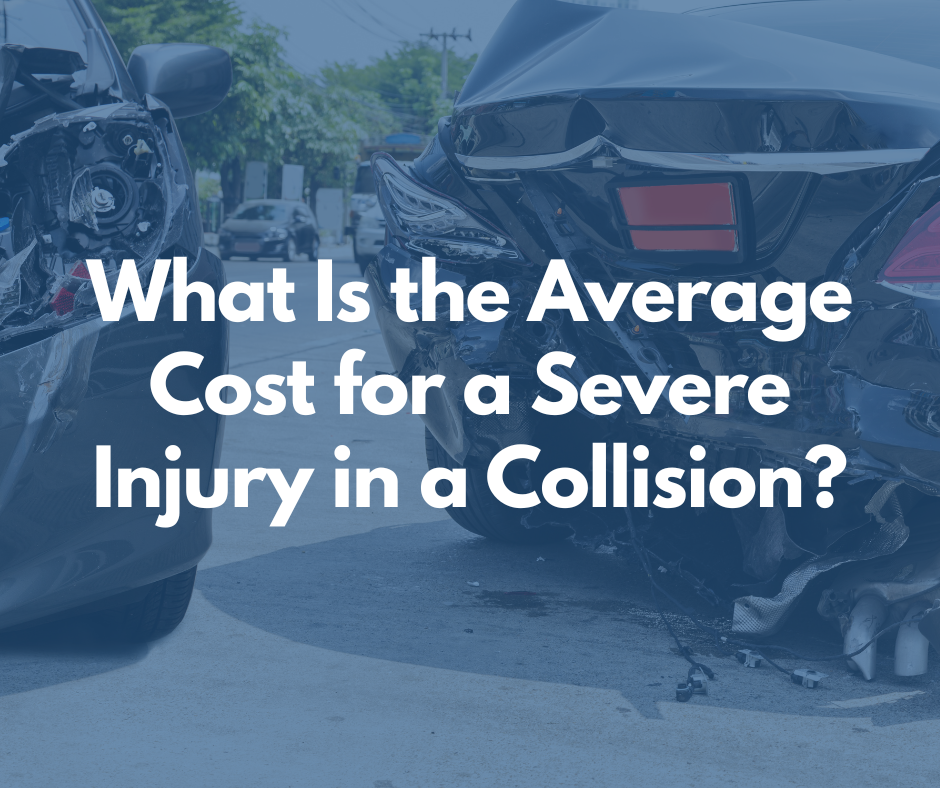
In a significant shift for Colorado's legal landscape, the personal injury lawyers at Metier Law Firm would like to share the information about the recently passed Colorado House Bill 24-1472, which brings sweeping changes to personal injury and wrongful death cases. Signed into law by Governor Polis on June 3, 2024, this legislation marks a victory for injury victims and their families. Let's break down what this means for Coloradans.
The Big Picture: Increased Damage Caps
For nearly four decades, Colorado law limited the amount of money injury

victims could receive for non-economic damages - things like pain, suffering, and loss of quality of life. These caps often fell short of what juries believed victims deserved. Now, that's changing.
Starting January 1, 2025, the caps on non-economic damages will increase dramatically:
- For general personal injury cases: from about $642,180 to $1,500,000
- For wrongful death cases: from about $642,180 to $2,125,000
This is a game-changer for many injury victims, allowing for compensation that more closely matches the true impact of their injuries.
The Compromise Behind Colorado's House Bill 24-1472
House Bill 24-1472 emerged as a result of intense negotiations and compromise between two powerful interest groups in Colorado: the Colorado Trial Lawyers Association (CTLA) and various liability insurance lobby groups, with COPIC playing a particularly significant role.
The Players

1. Colorado Trial Lawyers Association (CTLA): This organization represents plaintiff's attorneys who advocate for injury victims' rights. CTLA has long pushed for higher damage caps, arguing that the existing limits were unfair to severely injured individuals.
- COPIC: As a major provider of medical professional liability insurance in Colorado, COPIC represents the interests of healthcare providers and has historically opposed significant increases in damage caps, citing concerns about rising insurance premiums and healthcare costs.
- Other Insurance Lobby Groups: Various other insurance industry representatives also played a role in the negotiations, generally aligning with COPIC's position.The Looming Ballot Battle
Prior to the compromise, both sides were preparing to take their case directly to Colorado voters in November 2024. They were poised to put forward competing ballot initiatives:
- The CTLA and consumer advocacy groups were likely to propose a measure that would significantly increase or potentially eliminate damage caps entirely.
- Insurance groups, led by COPIC, were expected to counter with a proposal that would maintain strict limits on damages or potentially even lower them.
This approach carried significant risks and potential costs for both sides:
- Financial Cost: Running a statewide ballot campaign in Colorado can cost millions of dollars. Both sides would have needed to invest heavily in advertising, voter outreach, and legal fees.
- Uncertainty: Ballot initiatives are inherently unpredictable. Voters might have approved either proposal, rejected both, or even passed conflicting measures, leading to legal confusion.
- All-or-Nothing Outcome: A ballot initiative could have resulted in a total victory for one side and a complete defeat for the other, leaving little room for nuance or compromise.
- Public Relations Risk: A contentious public campaign could have damaged the reputation of both the legal and insurance industries in the eyes of Colorado voters.The Compromise Process

Recognizing these risks, leaders from both the CTLA and the insurance lobby groups, particularly COPIC, engaged in behind-the-scenes negotiations. These talks likely involved:
- Extensive data analysis on the potential impacts of various cap levels
- Input from healthcare providers, patient advocacy groups, and economic experts
- Review of similar laws and outcomes in other states
- Consideration of long-term trends in healthcare costs and legal settlementsKey Elements of the Compromise
The resulting bill, HB 24-1472, reflects concessions from both sides:
- Increased Caps: The CTLA secured significant increases in damage caps, a major win for their side.
- Gradual Implementation: Insurance groups obtained a phased-in approach for medical malpractice cases, allowing time for adjustment.
- Maintained Structure: The basic structure of damage caps was preserved, rather than eliminated entirely.
- Inflation Adjustments: Future inflation adjustments were included, addressing a long-standing CTLA concern.Legislative Process
After reaching this compromise, the stakeholders worked with Colorado legislators to draft and introduce House Bill 24-1472. The bill's bipartisan support and the backing of major stakeholders likely contributed to its relatively smooth passage through the legislature and its ultimate signing by Governor Polis.
Implications of the Compromise
This compromise demonstrates the power of negotiation in shaping public policy. By avoiding a costly and unpredictable ballot battle, both sides achieved several goals:
- They maintained a degree of control over the outcome.
- They preserved relationships necessary for future negotiations.
- They achieved a more balanced solution that considers multiple perspectives.
While neither side got everything they wanted, the compromise in HB 24-1472 represents a significant shift in Colorado's approach to injury compensation, one that both sides evidently felt they could accept.
Who Can File a Wrongful Death Claim?
The new law also expands who can file a wrongful death claim. Previously, only spouses, children, or parents could typically file. Now, in cases where there are no such close relatives, siblings or even nieces and nephews might be able to seek justice for their lost loved one.
Medical Malpractice Cases: A Gradual Increase
For those injured due to medical errors, the changes will be more gradual:
- The cap for wrongful death from medical malpractice will increase yearly, reaching $1,575,000 by 2029.
- For other medical malpractice cases, the non-economic damages cap will rise to $875,000 by 2029.
What This Means for You
- Timing Matters: If you have a potential case, when you file could significantly impact your compensation. Cases filed in 2025 or for injuries occurring after January 1, 2025, will benefit from these higher caps.
- Fairer Compensation: The increased caps mean that severe injuries resulting in lifelong pain or disability could be compensated more appropriately.
- Extended Family Rights: In tragic cases where someone dies without leaving behind a spouse, children, or parents, other family members may now have legal recourse.
- Medical Errors: While the increases for medical malpractice cases are more modest, they still represent a significant improvement for patients harmed by healthcare providers.The Road to Change

This new law didn't happen overnight. It's the result of years of advocacy by trial lawyers and injury victims who argued that the old caps were unjust. The law represents a compromise between these advocates and insurance companies, avoiding a potentially contentious ballot initiative.
Looking Ahead: Inflation Adjustments
It's worth noting that these new caps aren't set in stone. Starting in 2028, they'll be adjusted for inflation every two years. This ensures that as the cost of living increases, so too will the potential compensation for injury victims.
What Hasn't Changed
While this law brings significant improvements, some aspects of personal injury law in Colorado remain the same:
- You still need to prove that someone else's negligence caused your injury.
- There are still time limits (statutes of limitations) for filing claims.
- Economic damages (like medical bills and lost wages) remain uncapped.
- Physical impairment and disfigurement damages remain uncapped.
Why This Matters
Imagine suffering a life-altering injury. Beyond the physical pain, you might face depression, anxiety, or the loss of activities that once brought you joy. Perhaps your relationships suffer, or you can no longer pursue your career. Under the old law, no matter how severely your life was impacted, your compensation for these non-economic damages was severely limited.
Now, there's a better chance that the compensation will match the true cost of the injury to your life.
What to Do If You're Injured
If you've been injured due to someone else's negligence:
- Seek medical attention immediately.
- Document everything related to your injury and treatment.
- Be cautious about speaking with insurance companies.
- Consider consulting with a
personal injury attorney to understand your rights under this new law.
Conclusion
House Bill 24-1472 represents a significant step forward for injury victims in Colorado. While it doesn't solve every problem, it does bring the state closer to a system where jury decisions are respected and victims can receive fairer compensation.
Remember, every case is unique. If you've been injured, it's crucial that you speak with one of our highly experienced attorneys at Metier Law Firm who can help you understand how this new law might apply to your situation. Call us today for your free and confidential consultation at (866) 377-3800 or fill out our free consultation request form at metierlaw.com.
As Colorado adapts to these changes, we'll likely see further developments in how personal injury and wrongful death cases are handled. Stay informed, know your rights, and remember that this law aims to provide better justice for those who have suffered due to others' negligence.
Tell Us About Your Case – Free Case Review with a Colorado Personal Injury Lawyer
Tell Us About Your Case – Free Case Review with a Personal Injury Lawyer
(866) 377-3800Our Locations
.webp)
Do I have a Case?
How Much Should I Be Offered?
Do I Need an Attorney?
If these questions have crossed your mind, let us help. You may need a little direction or may not need an attorney at all, but you deserve to be confident knowing your options. We can provide you with information about our Attorneys of the West® accident investigations and legal services. Your confidential consultation with us is totally free.
Keep up with us!

.svg)




